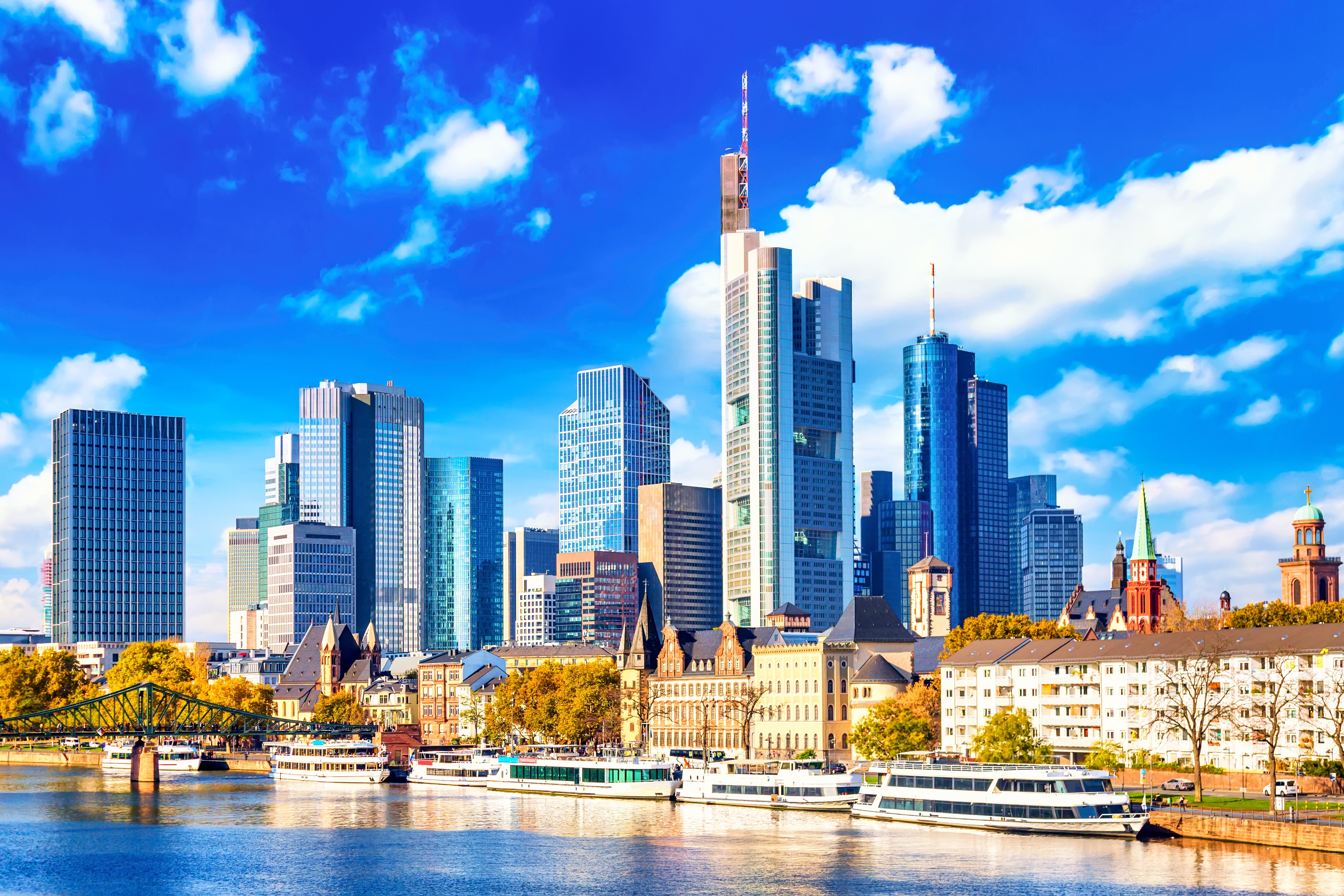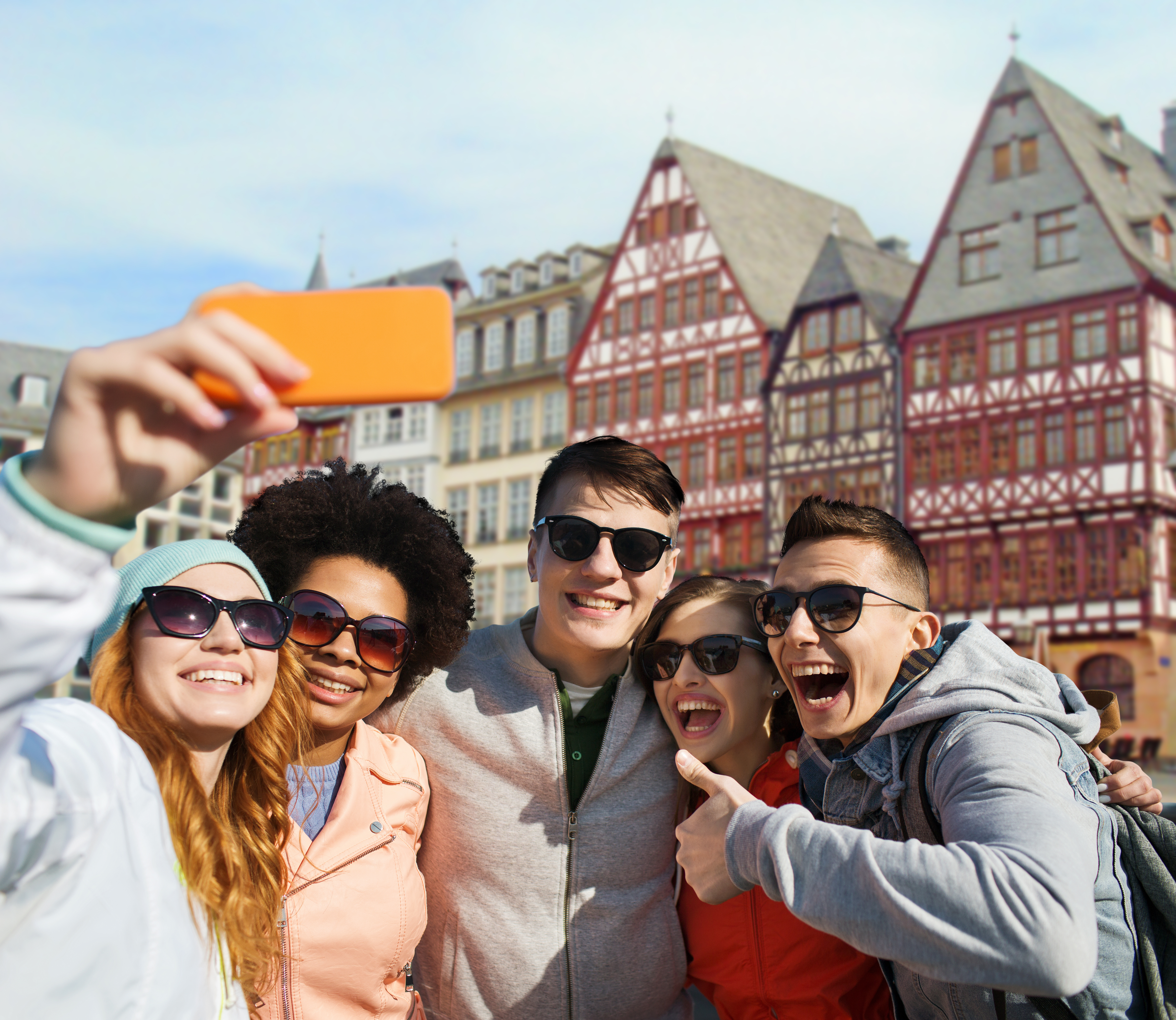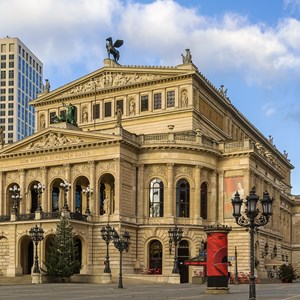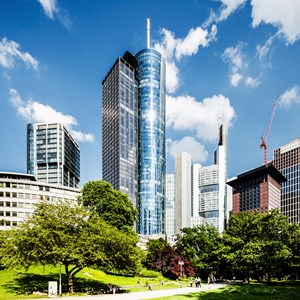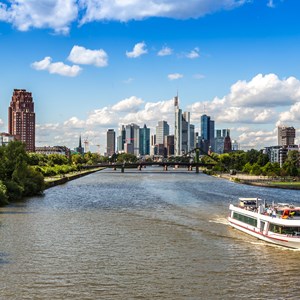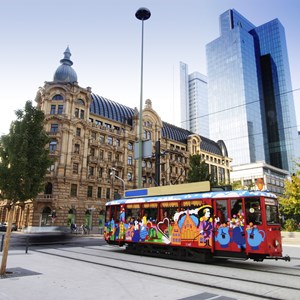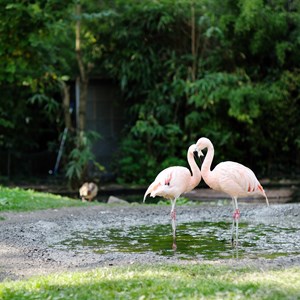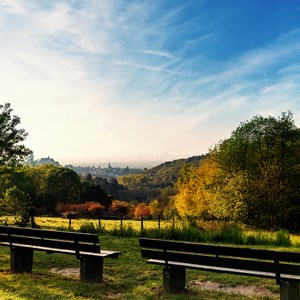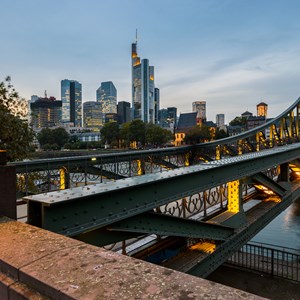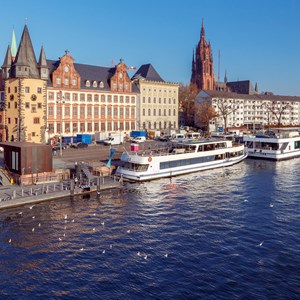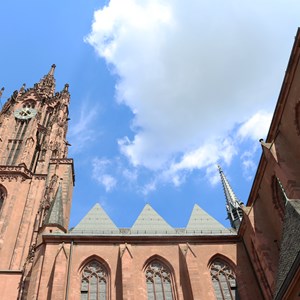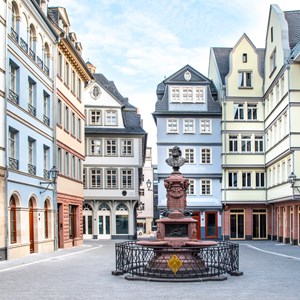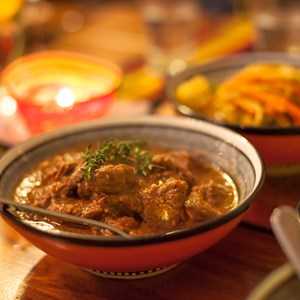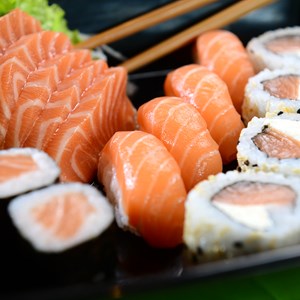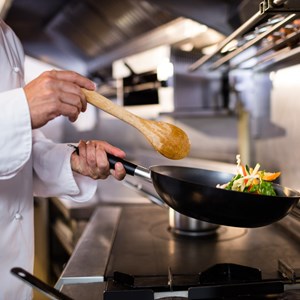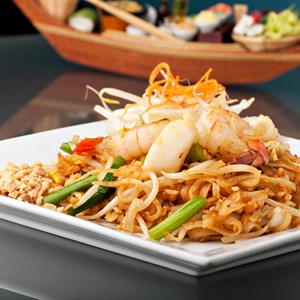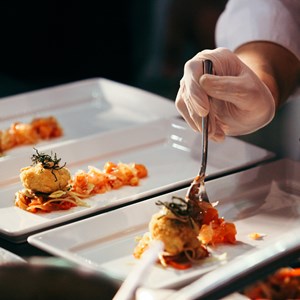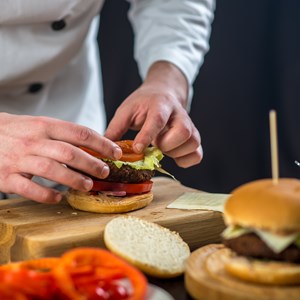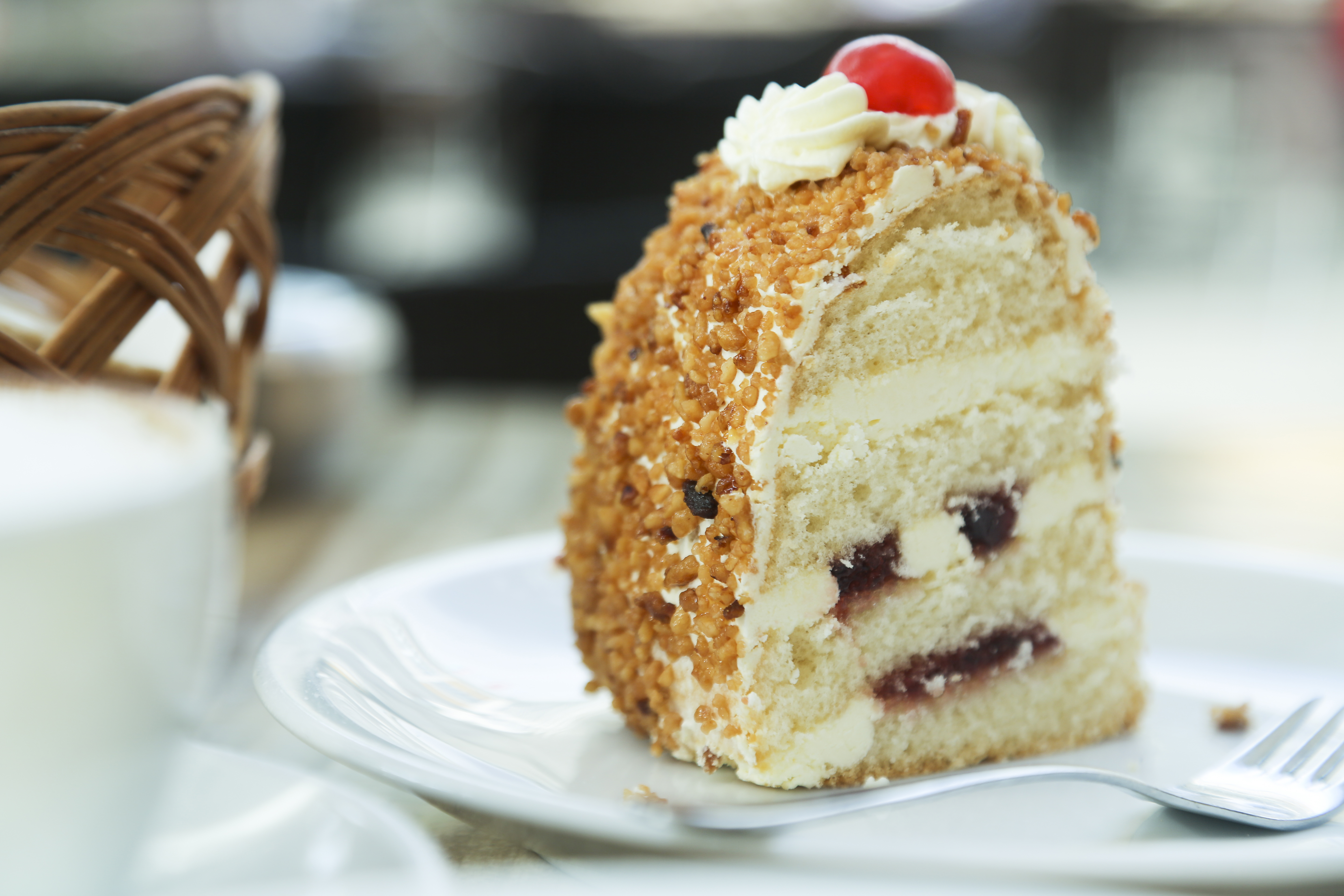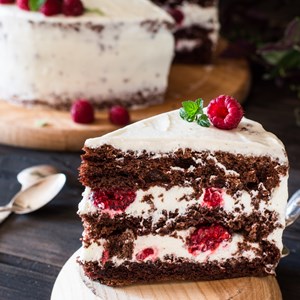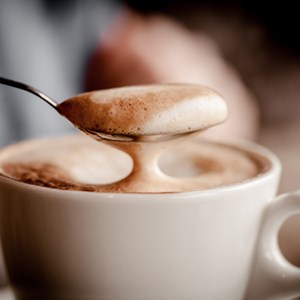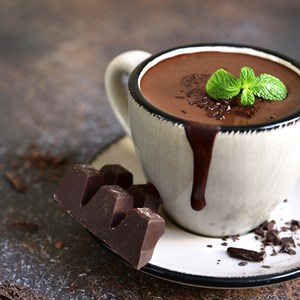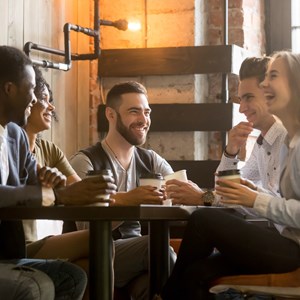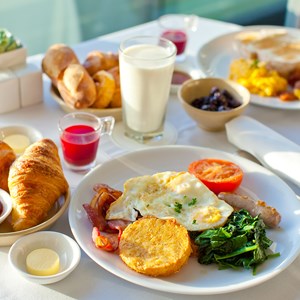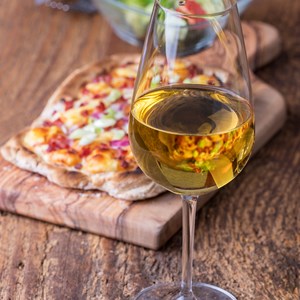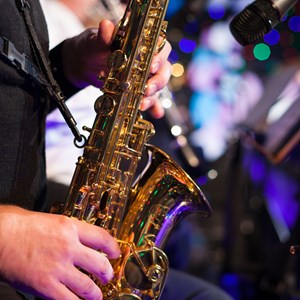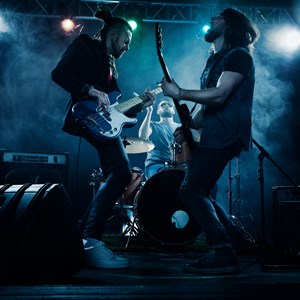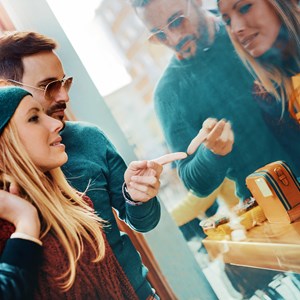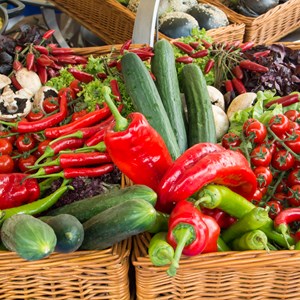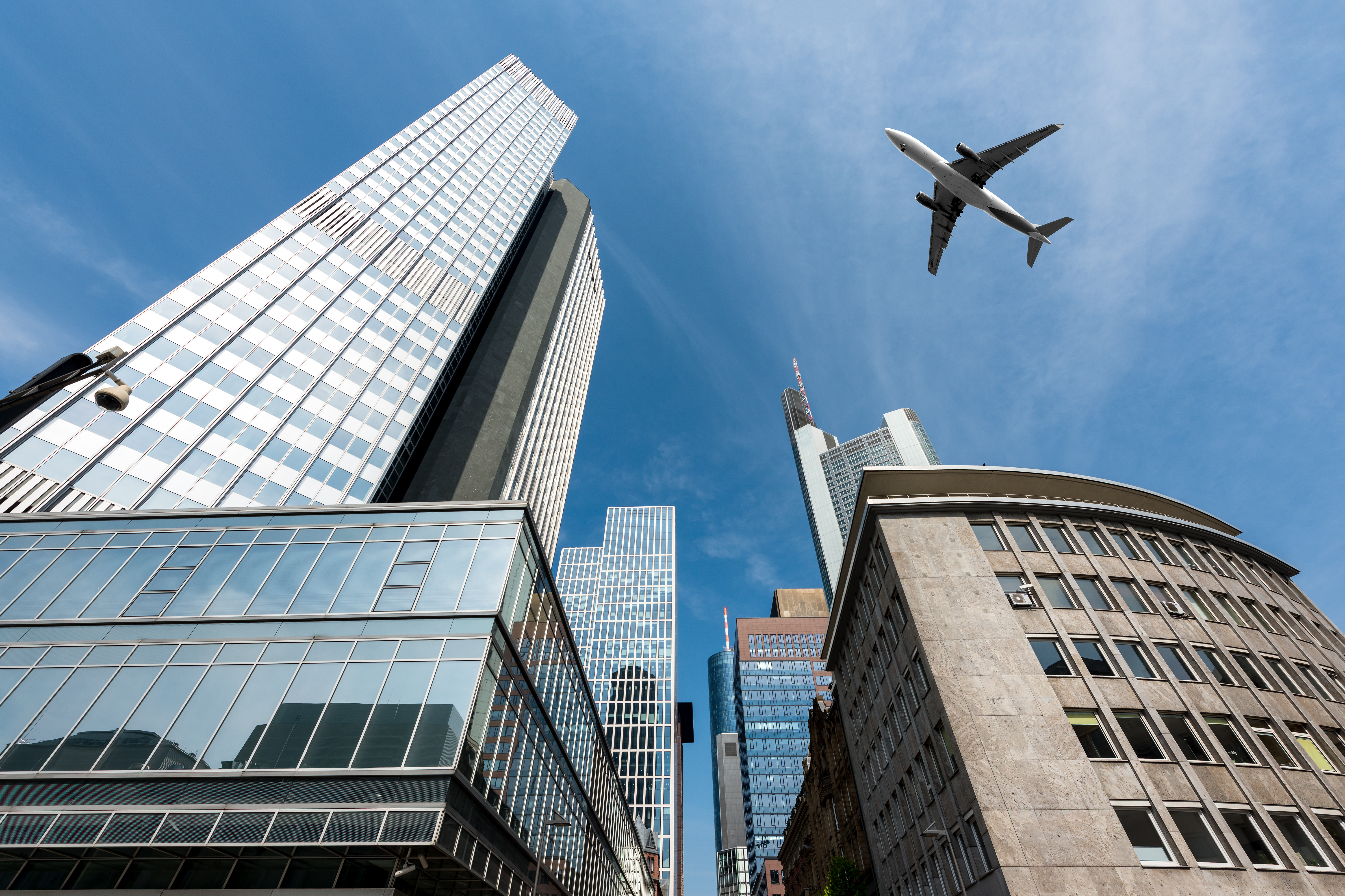

Frankfurt may be best known for its modern skyline and role as Europe’s financial hub, but behind the banks and business lies a city full of heart. Between gleaming steel-and-glass towers and medieval squares, Frankfurt reveals its softer side: art, music, and a cosmopolitan spirit that welcomes the world. Compact, creative, and full of contrasts, Frankfurt is always evolving, and that’s what makes it so exciting.
The City
Frankfurt has been a centre of trade and ideas for centuries. Its story goes back to the Middle Ages, when merchants gathered along the River Main to exchange goods and news from across Europe. Over time, the city grew into one of the continent’s key financial and commercial centres — a role it still plays today as the home of the European Central Bank.
Modern Frankfurt is often called 'Mainhattan' for its skyline of glass towers, but there’s more to it than business and banking. Beyond the high-rises, the city has a creative, down-to-earth side. Independent galleries, fashion labels, and bars fill its former warehouses, while the cobbled streets of Alt-Sachsenhausen still echo with the clink of apple wine glasses in traditional pubs.
It’s a city of contrasts: historic squares and futuristic skyscrapers, quiet parks and buzzing markets, all tied together by the River Main. Whether you’re here for business, culture, or a riverside stroll, Frankfurt feels both distinctly German and unmistakably international.
Do & See
Frankfurt am Main, the bustling metropolis in the heart of Europe, is known for its unusual contrasts: historical attractions, as the Römerberg with its half-timbered houses, the Emperors' Cathedral or St Paul's Church, are just a stone's throw away from the unique skyline, extraordinary cultural offers, a real shopping eldorado and numerous events throughout the year, which make Frankfurt the perfect destination for an exciting city break.
 Tourismus+Congress GmbH Frankfurt am Main
Tourismus+Congress GmbH Frankfurt am Main
Städel Museum
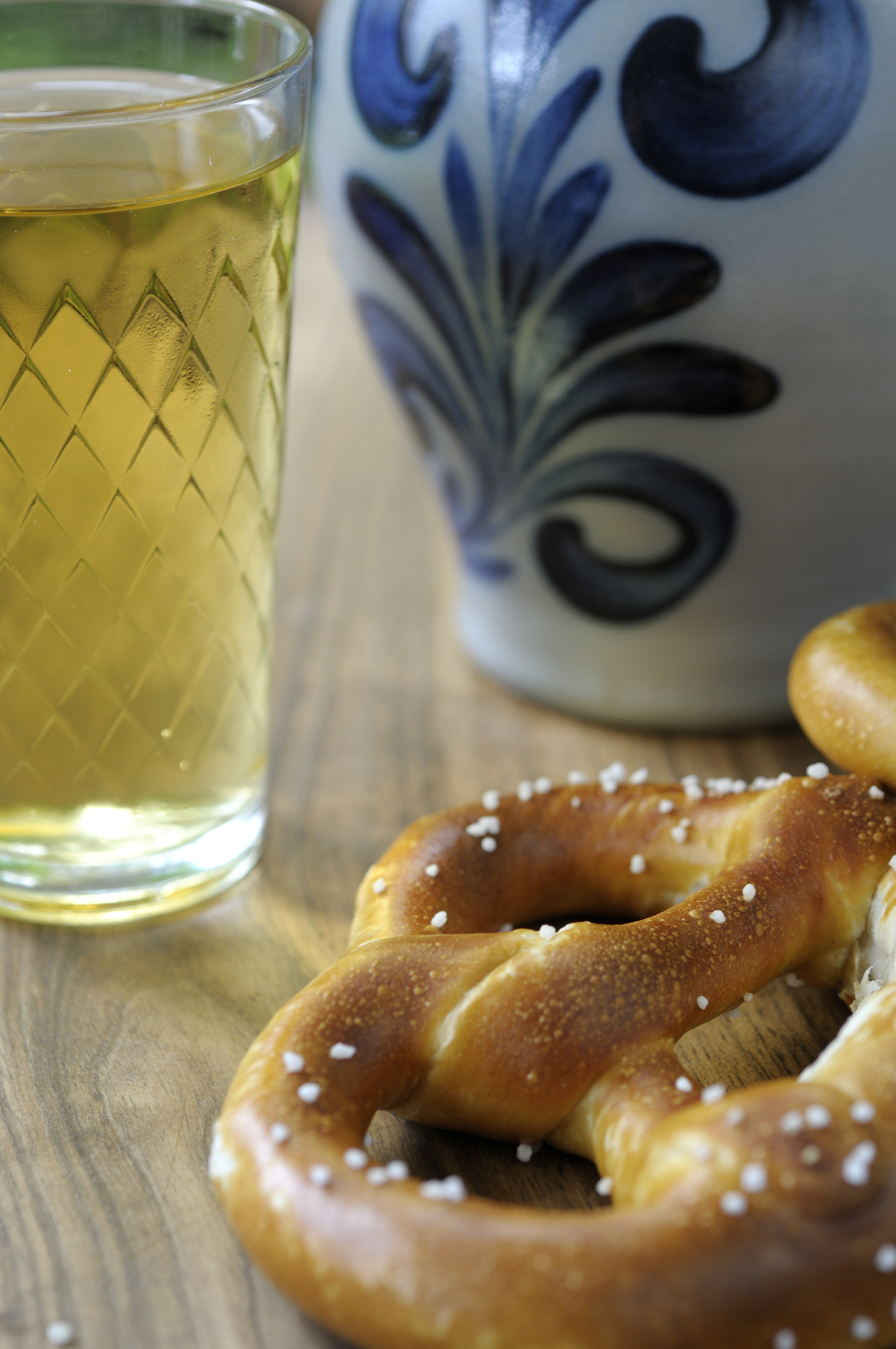 Frankfurt Tourist+Congress Board
Frankfurt Tourist+Congress Board
Dining
Whether it’s an award-winning gourmet restaurant, a trendy eatery, international cuisine, or a traditional apple wine pub, Frankfurt has something for every taste.
Classics include the city’s famous apple wine, served in a Bembel (a blue-grey stoneware jug) and drunk from a special ribbed glass. Apple wine pubs often pair the drink with frankfurters, Grüne Soße, or Handkäs mit Musik — small round cheeses marinated in vinegar and chopped onions. Most of these traditional taverns can be found in Sachsenhausen.
The Freßgass, Frankfurt’s culinary main street, is lined with cafés, restaurants, bistros, and delis, making it a good place to wander and sample a variety of dishes.
Throughout the week, the city hosts several food markets where locals buy fresh fruit and vegetables, meat, fish, cheese, flowers, and other goods. Each market has its own character and offers a glimpse into everyday life in Frankfurt.
Cafés
Whether you're seeking a classic Frankfurter Kranz (a buttercream-filled cake which originated from Frankfurt am Main) in a historic setting or a meticulously brewed single-origin espresso in a minimalist space, the city's cafés offer a diverse array of experiences.
Bars & Nightlife
Frankfurt has a diverse evening scene, whether you want to take in the city from a sky-high lounge, unwind in a stylish piano bar, or catch a live concert at one of its clubs. The city is famous for its apple cider, the 'Äppelwoi', so make sure to visit one of the traditional cider pubs. Popular nightlife areas include Sachsenhausen, packed with cosy bars and pubs, and the trendy Bahnhofsviertel (station district), where modern, creative bars and clubs have been popping up in recent years.
Shopping
Frankfurt, Germany’s economic heart, is also a shopper’s city, with its main hub in the city centre. The pedestrian street Zeil is home to Galeria, a classic department store, and the modern MyZeil mall.
For luxury labels, Goethestraße is the city’s top destination. Just next door, Freßgass mixes shops with cafés and gourmet food outlets, while Kaiserhofstraße offers a quieter alternative for high-end boutiques.
South of the river Main, Sachsenhausen has a more relaxed feel with small boutiques, design stores, and artisanal shops. Bornheim, along Bergerstraße, is a lively area for vintage fashion, design shops, and cafés popular with younger crowds.
Tourist Information
Passport/Visa
Citizens of the European Union (EU) and European Economic Area (EEA) countries do not need a visa to enter Germany, only a valid ID. Many other countries, including the United Kingdom, the United States, Canada, the United Arab Emirates, Australia, and New Zealand, benefit from visa-free entry for short stays of up to 90 days within a 180-day period.
Visitors from visa-exempt countries must hold a valid passport and, starting in late 2025, will need to apply for an ETIAS (European Travel Information and Authorisation System) authorisation online before travelling.
For those requiring a visa, such as travellers from some Middle Eastern, African, or Asian nations, a Schengen visa must be obtained prior to arrival. All travellers should ensure their passport is valid for at least three months beyond their intended stay.
Address:
Email:
Phone:
Website:
More Information:
Frankfurt Airport (FRA)
One of Europe’s busiest international hubs, Frankfurt Airport (FRA) is located about 12 km southwest of the city centre. The quickest way into the city is by S-Bahn lines S8 or S9, which run from the Regionalbahnhof under Terminal 1 to Frankfurt Hauptbahnhof in around 10 to 12 minutes. Regional Express (RE) trains and long-distance services also stop at the Fernbahnhof station beside Terminal 1. Taxis take roughly 20 to 30 minutes, depending on traffic, and bus line 61 runs from Terminal 1 to Frankfurt Südbahnhof in about 25 minutes.
Address: Frankfurt Airport
Email:
Phone:
Website: www.frankfurt-airport.com/de.html
More Information:
Best Time to Visit
The best time to visit Frankfurt is from late spring to early autumn, when the weather is pleasant and the city feels less crowded. Summer can get warm, around 25°C, and this is when Frankfurt is at its busiest, with tourists, outdoor events, and festivals filling the streets. From mid-September to mid-October, the city turns golden with autumn colours, which are best admired from one of Frankfurt’s tall towers. Oktoberfest runs during this period too, with plenty of beer, food, music, and local fun, though on a smaller scale than Munich. For festive cheer, December is ideal. The Christmas market fills the city centre with lights, stalls, and that unmistakable holiday atmosphere.
Address:
Email:
Phone:
Website:
More Information:
Public Transport
Frankfurt boasts an efficient and comprehensive public transport system, making it an excellent choice for tourists exploring the city.
Operated by the Rhein-Main-Verkehrsverbund (RMV), the network encompasses buses, trams, U-Bahn (subway), and S-Bahn (suburban trains), all integrated under a unified fare system. This integration allows passengers to use a single ticket across different modes of transport.
For tourists, the Frankfurt Card is particularly advantageous. Available for 1 or 2 days, it offers unlimited travel within the RMV fare zone 50, which includes the city centre and the airport. The card also provides discounts on numerous museums, attractions, and dining establishments.
Tickets can be purchased via the RMVgo app, at RMV ticket machines, or directly from bus drivers. It's important to note that Frankfurt operates on a proof-of-payment system, which means there are no turnstiles. Therefore, passengers should ensure they have a valid ticket before boarding, as plainclothes inspectors conduct random checks, and fines are imposed for non-compliance.
For information on fares, timetables, and routes, visit RMV's official website.
Address:
Email:
Phone:
Website: www.rmv.de/c/de/start
More Information:
Taxi
In Frankfurt, taxis can be hailed on the street (if the roof sign is on), found at ranks near train stations, major hotels and airports, or booked via phone or apps. Local taxi services, such as Flash Taxi and Main Taxi Frankfurt, operate reliably across the city. Ride‑sharing apps, such as FreeNow and Bolt, are also available in Frankfurt.
Address:
Email:
Phone:
Website:
More Information:
Post
Post offices in Frankfurt generally operate Monday to Friday from about 9 am to 7 pm, and on Saturdays from 9 am to 2 pm, though hours can vary by branch. Services include mailing letters and parcels, buying stamps and packaging, and in some branches, offering Postbank financial services. Many also serve as drop-off or pickup points for DHL parcels. The most convenient branch for travellers is the Deutsche Post at Goetheplatz 6 in the Innenstadt.
Address: Goetheplatz 6, Frankfurt
Email:
Phone: +49 228 43 33 111
Website:
More Information:
Pharmacy
Pharmacies in Frankfurt are easy to spot by the bright red ‘A’ sign for Apotheke. Most are independently run rather than part of large chains, and staff are generally well-versed in English, particularly in central areas. They sell prescription and over-the-counter medicines, as well as travel essentials, and can often advise on local equivalents for foreign medications. For travellers, Hirsch Apotheke on the Zeil and Centrum-Apotheke an der Hauptwache are both central and reliable options.
Address: Centrum Apotheke an der Hauptwache - Schillerstraße 4, Frankfurt
Email:
Phone:
Website:
More Information:
Electricity
In Germany, the electrical system operates on a voltage of 230 volts with a frequency of 50 hertz. The country uses plug types C and F, both of which have two round pins. Type F also includes two earth clips on the side for grounding.
Address:
Email:
Phone:
Website:
More Information:
Telephone
Country code: 49
Area code: 69
Address:
Email:
Phone:
Website:
More Information:


